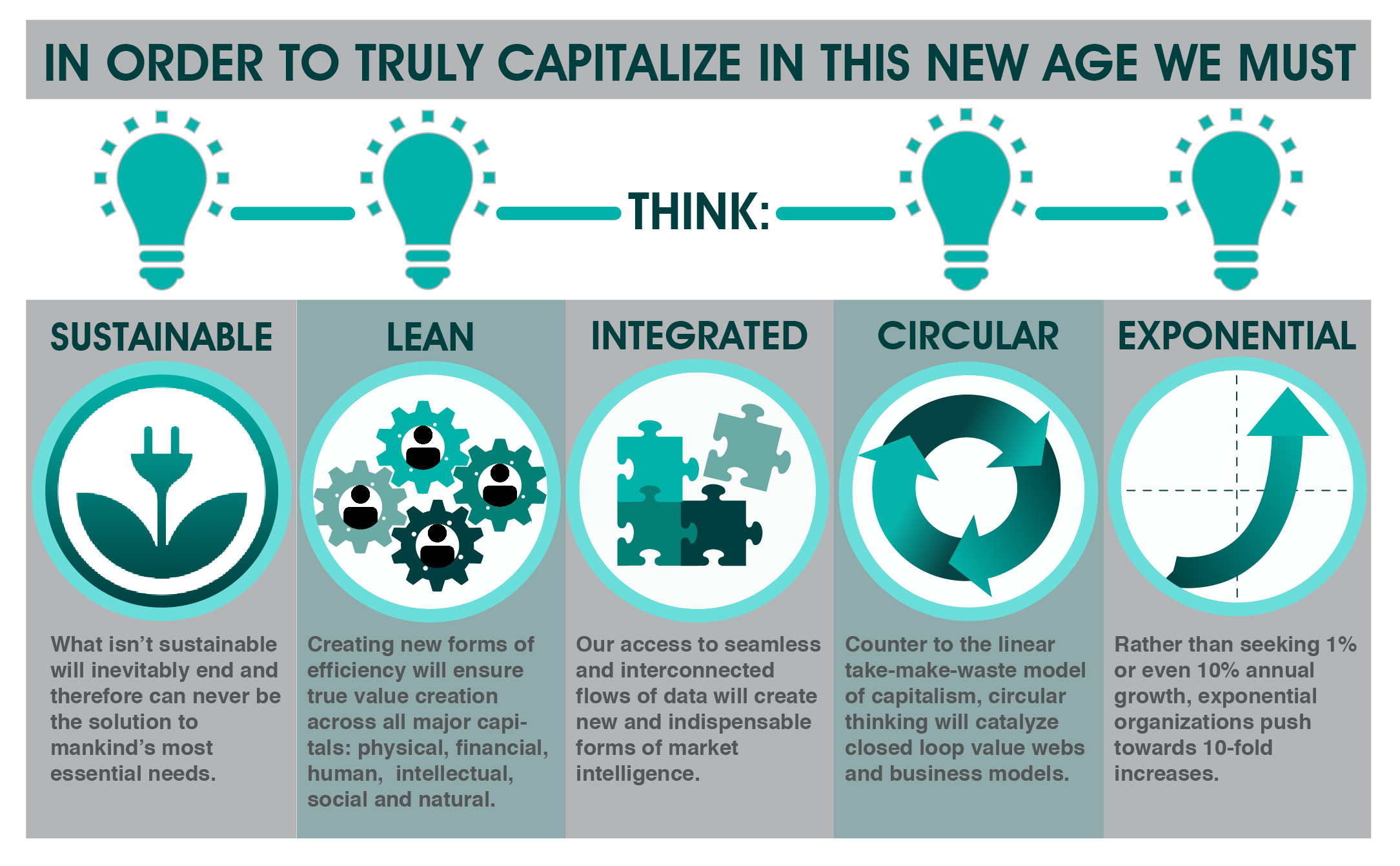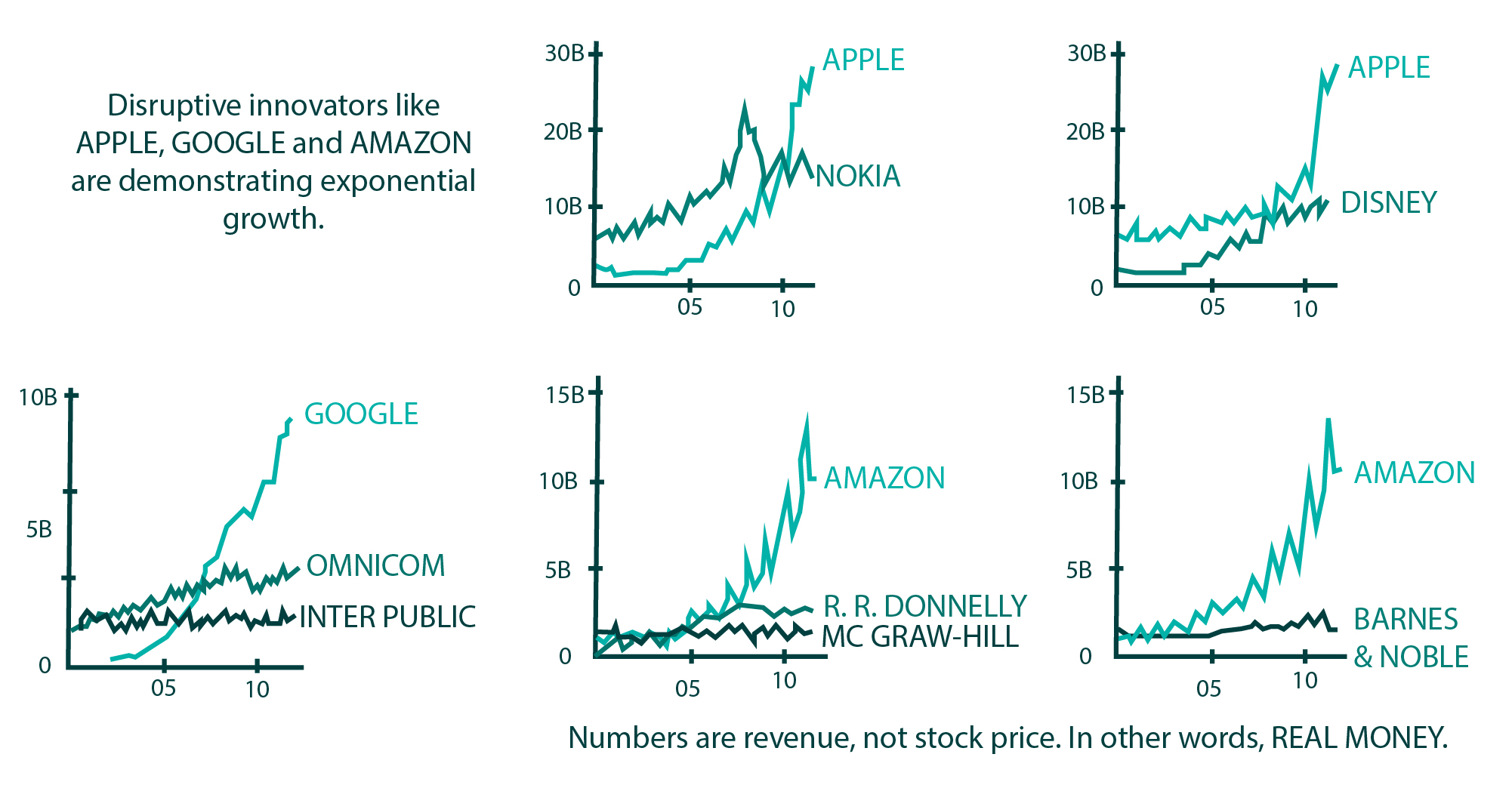Evolve or die. Certainly a harsh way to perceive the world around us but make no mistake this maxim is more appropriate today than ever before. With the relentless rise of populations, the rapid degradation of our environment and an unprecedented depletion of our most vital resources, such driving pressures are testing the frontiers of mankind and catalyzing innovation in the very way we live and do business.
A new commercial reality is emerging. In order to succeed, create true value and build the new world order in this new economic age we must achieve exponential progress in four key domains – sustainability, efficiency, integrated information systems as well as circular production and consumption. Only through their application in our daily lives will we be able to spur a mindset shift from incrementalism to increasingly exponential and experimental breakthrough thinking that perceives business as part of a wider social and natural system, ultimately rendering the old way of doing things obsolete and dangerous.

Exponential is not only a mindset, but also a choice companies make to achieve unprecedented value and scalability. This has been made possible through the pace, scope and cost effectiveness of innovation today. According to Exponential Organizations, “the cost of 3D printing has dropped by a factor of 400 in the past seven years. Industrial robots cost 1/23 of what they did just five years ago. Drones are 143x cheaper than they were in 2010.” The availability of ever-cheaper and more powerful technology allows smaller teams like the one from the KYC service provider company Fully-Verified, to accomplish feats that were previously exclusive to governments and multinational businesses. The benefit of being smaller and exponential is added agility – the ability to innovate and change course faster than these corporate behemoths.
Whereas linear organizations are necessarily constrained by limited resources, exponential organizations are governed by an assumption of abundance. Uber, the world’s largest taxi firm, owns no cars. Facebook, the world’s most popular media company, creates no content. Airbnb, the world’s largest accommodation provider, owns no property. Consider Hyatt Hotels, a typically linear and successful organization with hundreds of locations in dozens of countries. With each new location, Hyatt must develop a new hotel, hire staff as well as pay for maintenance. Their value: an estimated $11 billion. Airbnb in a matter of years has overtaken this and reached an impressive $20 billion. By simply adopting a system or solution with ease and at low cost that is applicable anywhere in the world, the exponential can be achieved.
Source: YCharts (2016)
Industry heavyweights continue to face disorienting movements in the global markets that will force a shift in the way we do business. In the European Union, leading energy utility companies lost over €500 billion in a matter of years as they were squeezed by constraints on coal-fired and nuclear power stations. The world’s major food and agrochemical institutions lost $ 4 billion in market share in 2015 alone and have lost $18 billion since 2009. An increasingly important factor in this drastic loss of market share is the unprecedented access to innovative technologies across renewable energy and organic food production. Sustainability is at the heart of this movement and is even on the verge of becoming exponential. In 2014, the Rockefeller Brothers Fund managed the divestment of $52 billion from fossil fuels into renewable and sustainable alternatives. In 2016, the figure is expected to be $5 trillion.
Evolving as an exponential organization is as much a necessity as it is a choice. This breakthrough business model will deliver positive impacts for people, maximize the value of all forms of capital (including human and natural), connect economic, social and environmental systems as well as ensure true sustainability and value creation.
